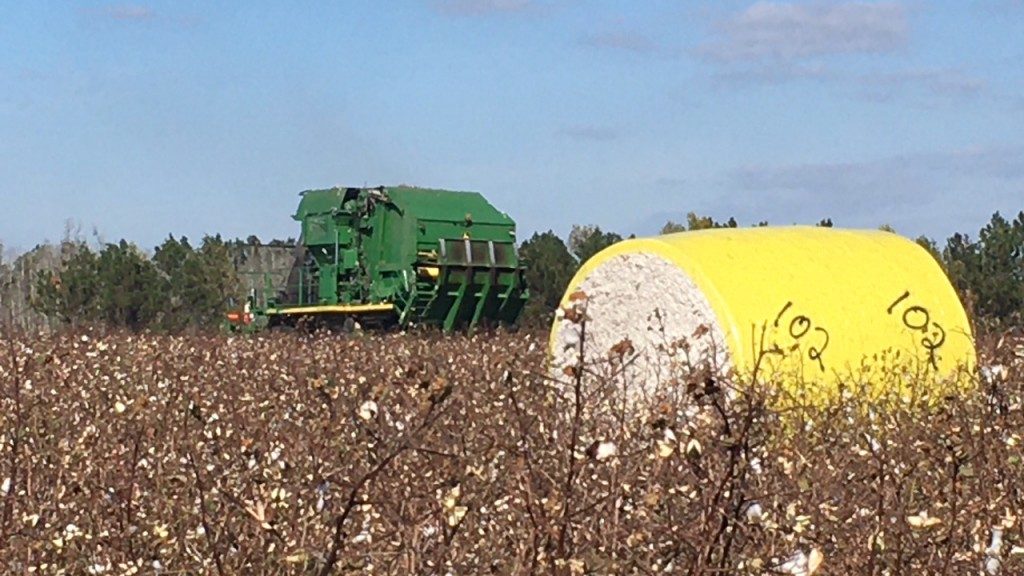Jeremy Kichler
-
Ty Torrance, UGA Tri County Vegetable Agent , would like to invite all of you to attend a Vegetable Insect and Disease update July 20th at Noon. The meeting will be held in-person at the Extension Ag Complex in Moultrie. This will be an update by Stormy Sparks on Diamondback data collected from the spring…
Posted in: Vegetables -
Jun 23, 2021 | Written by Simerjeet Virk PWM systems are becoming more common on boom sprayers recently and there are increasing number of growers who are first-time users of these systems and need to make nozzle selection decisions for their systems. While nozzle selection for a PWM system is somewhat similar to the nozzle selection process for…
Posted in: engineering -
Cotton: The cotton crop in the area ranges from just emerging to first bloom. Aphid populations seem to be building in some areas in the county. Aphids will typically build moderate to high numbers and eventually crash due to a naturally occurring fungus, Neozygites fresenii. This fungal epizootic typically occurs in late June or early…
-
Posted in: Uncategorized
-
Corn: Southern Rust has been reported in Coffee and Colquitt Counties this week. Area corn ranges from pre tassel to post pollination stage of development. Which growers are at highest risk? According to Bob Kemerait, because the rust (which was well established in the field) was found in Coffee County, I would say any corn…
-
Amanda Smith, UGA Ag Economist, has updated the row crop comparison tool on the Extension Ag Economics Budgets web page. The May update includes increased commodity prices, updated crop insurance prices and higher fuel and fertilizer prices. Row Crop Comparison Tool May 2021 Strip Till Row Crop Comparison Tool May 2021 Conventional Till If you…
-
Current Situation: Happy Memorial Day! The majority of the cotton and peanut crop is planted. Corn is reaching critical moisture requirements as the crop is approaching tassel and pollination. Peanut growers are asking about cracking spray options. Cotton growers are starting to apply weed control and thrips pressure has been high in some area fields.…
Posted in: Beef Cattle, Corn, Cotton, Entolomogy, Hay & Forages, Irrigation, Peanuts, Weed Managment, Weed Resistance -
Insect scouting schools will be conducted on June 7, 2021 in Tifton and June 15, 2021 in Midville. Crops to be covered include cotton, peanuts, and soybean. These programs offer basic information on insect pest identification and damage, natural enemies, and scouting procedures. The training will serve as an introduction to insect monitoring for new…
-
I have had a few questions about cracking spray treatments on peanut. Below are a few words from Dr. Eric Prostko, UGA Weed Specialist on this subject. Peanut growers should now be evaluating the success of their PRE weed control programs and deciding on the need for early postemergence or “cracking” herbicide applications. Here are…
-
Dr. Wes Porter, UGA Irrigation Specialist, has provided a few tips on irrigation. As we all know we are predicted to have some extremely high temperatures over the next week or so, and are not predicted to receive any rainfall in the “long-term” forecast. He has compiled some recommendations and considerations for our three major…
